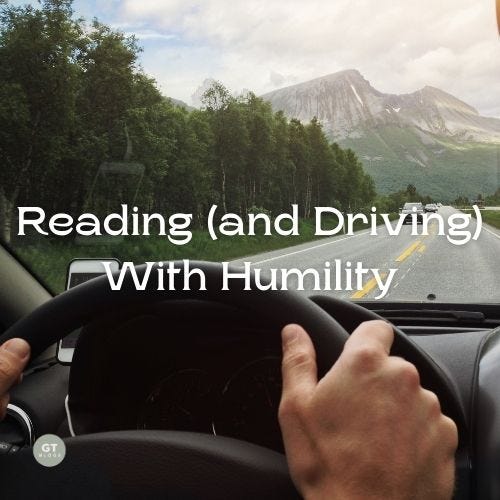Reading with pride is worthless. Why bother? If you’re not open to being challenged, what’s the point?
I don’t expect anyone to agree with one hundred percent of anything I write, and I don’t expect to agree with everything another author writes.[i] But sometimes, the things I dismiss most quickly are the very things I need to hear, heed, and consider.
Jo…
Keep reading with a 7-day free trial
Subscribe to Simply Sacred with Gary Thomas to keep reading this post and get 7 days of free access to the full post archives.


